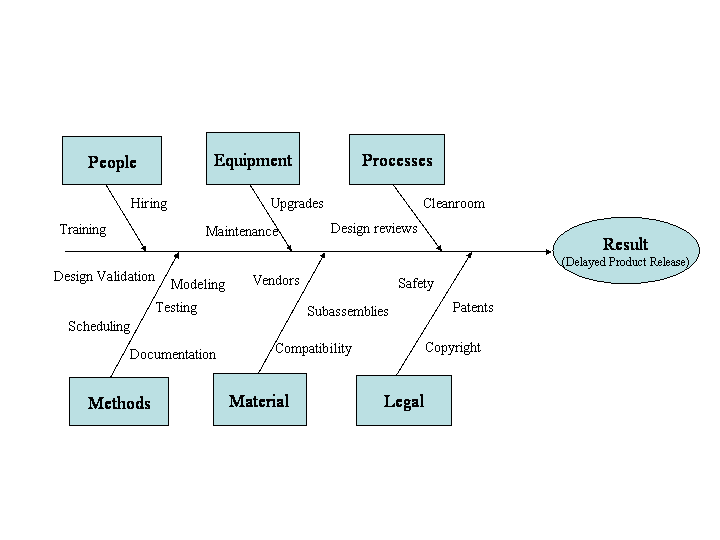StarkEffects.com
Articles by Subject Category
Physics Basics Series
- Basics of Classical Mechanics.
- Basics of Quantum Mechanics.
- Basics of Electrodynamics.
- Basics of Optics.
- Basics of Mathematical Tools for Physics.
- Basics of Plasma Physics.
- Basics of Solid State Physics.
Troy Stark's Science & Society Opinion Blog
Concise Articles, Tutorials & Primers on Physics, Math & Technology & Obscure Science Topics
Welcome to the StarkEffects.com Problem Solving Page!
How to recognize problems, create solutions and break out of the usual rules for thinking.
Solve the right problem, the right way.
Problem Solving
How to Solve Problems, Fast!
Techniques to help you
find solutions fast and solve the right problem at the right time.
No other skill will mean as much to your
future as becoming a great problem solver. Developing the skill of problem
solving means learning to balance the trade-off between diving in with all
your energy to get a solution and taking the time to make sure you understand
the problem and all of its implications so you solve the right problem the
right way.
You see, if you analyze the problem forever, it never gets solved. If you
dive in with a fury of action without a plan, you usually get no solution at all and you almost never get the right
solution, or you never solve the real problem.
Is there a Problem Here?
The first step in problem solving is recognizing that there is a problem. Actually, this step is a lot harder than you think. Most of us go through our daily lives having learned to live with problems so comfortably that we don't even realize they are problems.
For example, you might recall when owning a copy of a movie meant a big reel with 8mm film wrapped around it. You could actually watch a movie in your own home if you could run an 8mm projector. You might not have sound, but some movies didn’t really need it. Then, VHS tapes showed up. You could store a hundred movies on your shelf in the den. You could watch them any time you liked with sound and all. You could even rewind. Most of us thought we had hit the most advanced technology there could ever be. But somebody else saw a problem. Most of us never thought the fact that the tapes were analog was a problem. Most of us never thought that it took too much time to rewind a tape. We never even noticed that it was a real pain to find the scene you wanted. We were just thrilled that you could play a movie. In other words, if you want to be a great problem solver, you need to be one of those annoying people that recognizes problems where everyone knows things are just fine as they are.
A reasonable person adapts to his/her environment. Unreasonable people demand that the environment be adapted to suit them. Progress is made by unreasonable people.
OK, I stole that quote from a source I don’t remember, and perhaps “reason” is misused here, but you get the idea. Every solution I’ve ever seen has solved a problem that already had a work-around for a long time. It didn’t need solving because there was a way to get around the problem, a way to avoid actually solving the problem. We do this all the time. The trick you must learn is to step back and recognize that you are avoiding solving a problem or simply not recognizing that a problem exists.
Identify and Define the Problem
Just what the problem is depends on how you look at it. Once you think you have recognized a problem you need to make sure you have identified the problem correctly. For example, I have things I want to maintain in my possession but they vanish when I leave my house unlocked. Is the problem that I forgot to lock my house, or is it that my house doesn’t automatically lock itself and recognize only me when I come home? Or, better yet, is the problem that there are other people that are motivated to take possession of the things I have? Maybe the real problem is my compulsion to own “stuff”. As you can see, the solutions will depend on identifying the problem.
Defining the problem will also affect the possible solution space. If I define the problem as: “My company isn’t making enough profit because I’m not getting enough done everyday”, then a solution might be longer hours (maybe not). If instead, I define the problem as: “My company isn’t making enough profit because I spend too much of my day putting out fires or doing mundane non valuable tasks” then solutions might look quite different.
Organize Your Assault on the Problem
There are many different tools you can use to help you in identifying the problem you want to solve. One of my favorites is called a fishbone chart. The purpose of the fishbone chart is to help me organize my thinking about the causes of the problem I'm trying to solve. The head of the fish is the result or the problem, while each rib of the chart represents a cause of the problem. This type of chart can help me decide which cause to attack or which cause is the most important.

Generic Fishbone Cause and Effect Chart
The chart shown is too generic to be useful. You must fill in specific details of the causes of the problem to be solved.
Another of my favorite tools is a concept map. Many times the problem to be addressed remains a problem because of how we normally fit it into our built in concept maps. We simply accept it and work around it. To adjust the way we think about it, we can draw a map. This map consists of circles with concept names in each. Lines are drawn, usually with arrows to indicate how the concepts are all connected to each other. For example, the concept of a falling object can be connected to the concept of an accelerated reference frame, or you could instead think of it by a connection to the concept of conservation of energy. How you think about it depends on the maps you draw, either in your head or on paper, and on paper you can take a more direct control. What you can create, or what problems you can solve depends on how you think about the concepts involved. You can probably come up with better examples if you put a little thought into it.
The whole point of using tools is to organize your thoughts. Make the tools you use fluid enough to allow rapid change to accomodate your changing thought processes. Use the tools you choose to help make your thoughts more accessible, even to you.
Brainstorming
Explore more than one possible solution as well as more than one possible definition of the problem. Even after you have identified and carefully defined the problem, there may still be more than one solution. As an example, the problem: “My company isn’t making enough profit because I spend too much of my day putting out fires or doing mundane non valuable tasks” may be solved by hiring less expensive employees to do the mundane tasks, --or completely automating the mundane tasks so the less expensive employees can be put to more creative work, --or we simply quit doing mundane tasks and then find out what happens if we just don’t bother putting out those “emergency” fires. It may not be so bad after all. Then again, we may discover otherwise, but we need to find out in any case.
Take Action
No problem is ever solved until someone takes action and makes changes. Oh, by the way, expect to screw it up a few times before you find the right solution. Don't be afraid of making mistakes. All of the best problem solvers make mistakes and usually they make more mistakes than anybody else because they do more than anybody else. Take action make changes. There is no other way to solve problems.
Analyze the Results
Once you have made a change, critically examine the results. While you are exploring solutions, keep track of attempted solutions and the results. I know some guys who are very successful at marketing products on the internet. They created websites to sell these products and then they tested little tiny variations on those websites. Simple things like altering the background color of an image of the product turn out to have huge effects on the sales potential of the websites. This testing of little changes, a little like testing variations of your solutions, is what makes these friends of mine the best at marketing products on the net. If you want to be the best problem solver you can be, then you must put in the effort to test a few variations on your solutions. What you’ll find is that there are changes that you expect to be benign but turn out to have big effects and there are things you know for certain will alter the universe as we know it, but they show practically no effect at all. That is what science is all about: discovering those things you didn’t expect to discover and then being lead along a different path in how to think about things. All of this only happens when you make something happen.
Persistence
If the problem is worth solving, then don't give up until it is solved.
Quick Science & Math References
- Our Solar System.
- Earth Facts.
- The Metric System.
- Trigonometric Identities.
- Vector & Tensor Identities.
- Explicit Forms of Vector Operators
- Light & Electromagnetic Spectrum.
- Common Laser Wavelengths.
- Human Physiology Facts.
- Human History Timeline
- Geologic Timeline
- Cambrian Explosion
- Life on Earth Timeline
- ASCII Codes and HTML Display Codes
- Thousands of HTML Symbol Codes
- HTML Symbol Codes for Greek Letters
- The Best Way to put Equations on your Web Page
Physics Basics Series
- Basics of Classical Mechanics.
- Basics of Quantum Mechanics.
- Basics of Electrodynamics.
- Basics of Optics.
- Basics of Mathematical Tools for Physics.
- Basics of Plasma Physics.
- Basics of Solid State Physics.
Math Basics Series
- Numbers
- Arithmetic
- Algebra
- Geometry
- Analysis
Technology Basics Series
- Basics of Remote Sensing.
- Basics of Digital Signal Processing.
- Critical Electronic Circuits
- Infrared Imaging Basics
Knowledge Branches
- Information Theory
- How Reading Works in the Brain
- Psychology of Learning
- Logic
WORK IN PROGRESS
- What is the Stark Effect?
- The Chemistry of Love &/or Addiction
- Critical Thinking: How to question what you see, read or hear.
- Aristotle's Prior Analytics - the birth of Logic.
- Optical Solutions, lenses that solve problems
- Fractals
- PTC - Photon Transfer Curve or Mean Variance Analysis
- 3-D Noise
- Laser Primer
- Rail Guns
- Special Relativity
- Radar Technology
- Acousto-optic Cells
- Harmonic Generation for Laser Frequency Doubling (SHG) and Tripling -using non-linear crystals.
- Measurement: Accuracy & Precision.
- Things you should know about computer modeling of physical phenomena!
- Giant Magneto-resistance
- Peltier Cooling
- Pyro-Electric Detectors
- Piezo-Electric Crystals
- Laser Speckle
- FFT and DFT the fast fourier transform and the discrete fourier transform
- Fabry Perot Etalon
- The Hydrogen Atom.
- PCA (Principal Component Analysis)
- Energy per mass in fuels such as Hydrogen, Gasoline, Kerosene, HMX etc...
- Nobel prize winning work on the CCD
- How does a CCD work and what are the normal characteristics of a CCD
- Nobel Prize Winning work on Giant Magneto-resistance
- FROG -frequency resolved optical gating
- Optical Wavefront Sensing
- THz imaging and time-domain spectroscopy
- Camera Calibration
- Laser Designators
- Resampling
